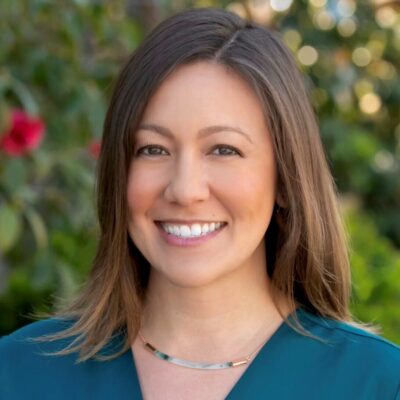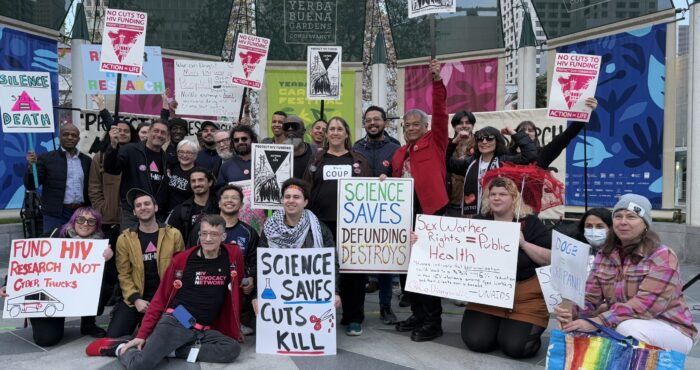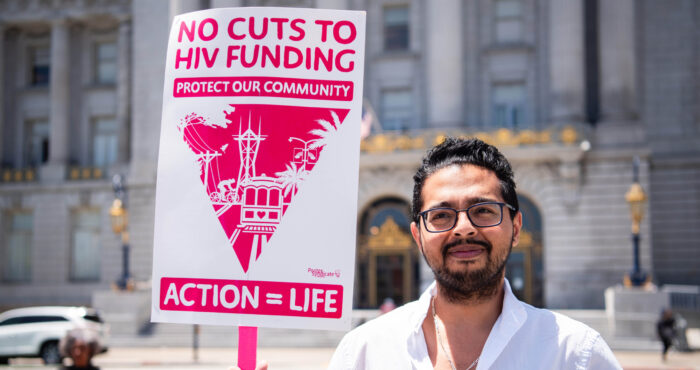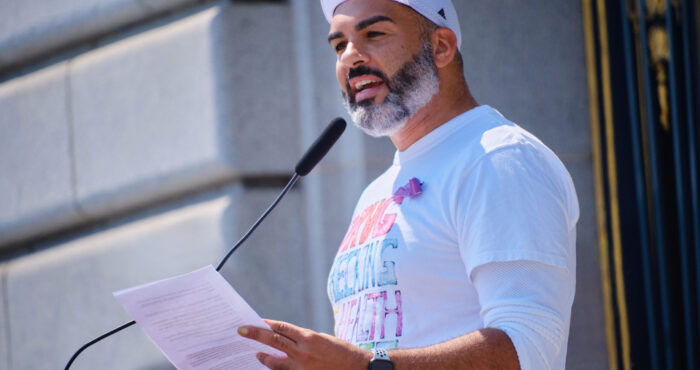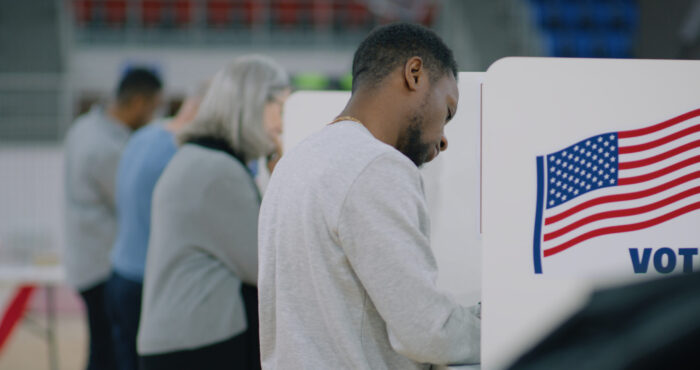What it’s like to provide HIV care to people without housing
How can a person take daily medications if they’re constantly having their belongings stolen? Or prioritize going to medical appointments if they’re just worried about where their next meal will come from? How can they contact their doctor with questions, if they can’t afford a mobile phone plan?
These are familiar questions for Erin Collins, a clinical social worker who provides case management and social services to people living with HIV experiencing homelessness in San Francisco. Based at Ward 86 at Zuckerberg San Francisco General Hospital, she works with clients who are struggling to meet their most basic needs to find innovative ways to stay engaged in HIV care, on HIV medications and virally suppressed.
“It’s a constant struggle,” said Collins. “Housing is really the most important thing. San Francisco has many services and resources for people living with HIV, but at the end of the day, people can’t address their medical care until they are in a safe environment to do so. It’s hard to focus on a accomplishing a daily task, like taking your meds, when you have to worry about where you’re going to sleep that night.”
A recent report from San Francisco Department of Health shared some startling differences in HIV health outcomes between people who are housed and people experiencing homelessness. HIV rates are higher overall among people who are homeless, and homeless people with HIV are far less likely to reach viral suppression quickly, be virally suppressed, or stay engaged in medical care.
“When you’re living with a chronic illness like HIV, your health is greatly at risk if you are homeless or unstably housed,” said Collins.
Taking a daily medication can be difficult—or impossible—for people who don’t have a stable place to store belongings, who are victims of robberies, are forced to move during encampment clean outs during street clean-ups or by law enforcement. Many times, bottles of HIV medications meant to last a month get lost, accidentally thrown away or stolen.
Collins is currently working with a person who is living on the street and struggling to take HIV medications daily.
“He just wanted to give up [on his HIV treatment],” said Collins. “He told me, ‘I don’t think I can do this any more.’ He lost a lot of hope in himself. He used to hold his meds independently, but kept getting robbed. He was the victim of violence, and was in and out of the emergency room. I worked with our pharmacist and we started having him come in every Monday, Wednesday and Friday to take medication—giving him doses for the remaining days in between.”
Because she works with such vulnerable patients, Collins’s work doesn’t start and end with HIV care. In addition to supporting clients as they take HIV medications and receive care, Collins works with clients on everything from getting a phone, to sorting out insurance questions, to securing housing. In collaboration with other community health and social services, she said the goal is to provide wrap-around services that help clients stabilize their lives.
Some days, the biggest challenge is simply locating a client who has fallen out of care. She knows to ask homeless patients where they camp, what color their tent is, and other ways she might identify where they are staying.
She goes out to look for patients on the street if she hasn’t seen them in a while or otherwise suspects they may need her assistance. She said keeping track of times and dates can be a challenge for people experiencing homelessness, which makes it difficult for her to set appointment times with patients.
“For some of my patients living on the streets, they have a hard time keeping track of the days and what time it is,” she said. Mostly, she holds weekly consistent time slots where they are free to drop in to see her as needed for them to know they can be seen, and the clinic wants to see them.
“We may take for granted things like being able to go home and lock our doors and sleep in a warm bed. It’s the bare-bone structure to where we start and end our day. My patients leave my office and think, ‘OK, now where am I going to go?’ If we had more housing, there is so much more we could improve the quality of health and life for so many people.”
—
Homelessness hurts all of San Francisco, but especially the most vulnerable members of our community. Join San Francisco AIDS Foundation and vote yes on Proposition C, on the ballot in November. Proposition C is a comprehensive plan to tackle San Francisco’s housing crisis.
Get involved and help advocate for Proposition C by joining a broad coalition of LGBTQ organization and AIDS service providers to call voters about Prop. C.






